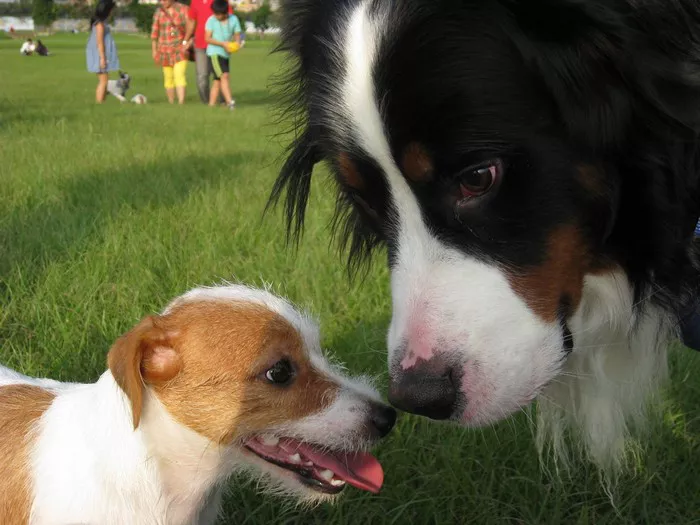Bringing a new furry friend into your home is an exciting and rewarding experience, but it also comes with responsibilities and considerations. If you’re considering adding a Bernese Mountain Dog to your family, there are several important factors to keep in mind to ensure a harmonious and fulfilling relationship with your canine companion. In this comprehensive guide, we delve into what you need to know before getting a Bernese Mountain Dog, covering everything from their temperament and health issues to their care requirements and lifestyle considerations.
Breed Characteristics
Bernese Mountain Dogs, affectionately known as Berners, possess a unique set of characteristics that define their breed:
Temperament: Bernese Mountain Dogs are renowned for their gentle and affectionate nature. They are loyal, loving, and thrive on human companionship, making them excellent family pets.
Energy Level: While Berners have a calm demeanor indoors, they are still active dogs that require regular exercise to keep them mentally and physically stimulated. Daily walks, play sessions, and outdoor activities are essential for their well-being.
Trainability: Bernese Mountain Dogs are intelligent and eager to please, making them relatively easy to train. Consistent and positive reinforcement methods are recommended to channel their intelligence and energy effectively.
Health Issues
Like all dog breeds, Bernese Mountain Dogs are prone to certain health issues that potential owners should be aware of:
Hip Dysplasia: A common orthopedic condition in large breeds, hip dysplasia can lead to mobility issues and discomfort for Berners. Screening for hip dysplasia through X-rays is recommended, especially for breeding purposes.
Elbow Dysplasia: Similarly, elbow dysplasia can affect Bernese Mountain Dogs, causing pain and lameness in the affected limbs. Early detection and management are essential for maintaining their quality of life.
Cancer: Berners are particularly susceptible to various types of cancer, including histiocytic sarcoma and mast cell tumors. Regular veterinary check-ups and early detection can help mitigate the impact of cancer on their health.
Care Requirements
Providing proper care for a Bernese Mountain Dog is essential for their health and well-being:
Grooming: Berners have a thick double coat that requires regular brushing to prevent matting and tangles. Additionally, they shed seasonally, so be prepared for increased grooming during shedding periods.
Exercise: Bernese Mountain Dogs need daily exercise to maintain their physical health and prevent obesity. Engage them in activities such as walks, hikes, and interactive play sessions to fulfill their exercise requirements.
Nutrition: A balanced diet tailored to their nutritional needs is crucial for Bernese Mountain Dogs’ overall health and longevity. Consult with your veterinarian to determine the best diet for your dog based on their age, weight, and activity level.
Training and Socialization
Proper training and socialization are essential for raising a well-behaved and well-adjusted Bernese Mountain Dog:
Basic Obedience: Start training your Berner early to establish good behavior habits and prevent potential issues as they grow older. Positive reinforcement techniques, such as praise and rewards, work well with this breed.
Socialization: Expose your Bernese Mountain Dog to various people, animals, and environments from a young age to help them develop into confident and well-socialized adults. This will also prevent potential behavioral problems, such as fearfulness or aggression, in the future.
Lifestyle Considerations
Before bringing a Bernese Mountain Dog into your home, consider the following lifestyle factors:
Space: Berners are large dogs that require ample space to move around comfortably, both indoors and outdoors. Ensure that you have enough room in your home and yard to accommodate their size and energy levels.
Time Commitment: Bernese Mountain Dogs thrive on human interaction and companionship. They require regular exercise, grooming, and attention from their owners to stay happy and healthy.
Compatibility: Consider whether a Bernese Mountain Dog is compatible with your family dynamics, including children and other pets. While they are typically good-natured and gentle, supervision is essential when interacting with small children due to their size.
Conclusion
Before welcoming a Bernese Mountain Dog into your home, it’s essential to understand their unique characteristics, health considerations, care requirements, and lifestyle implications. By being informed and prepared, you can provide the best possible care for your Berner and enjoy a fulfilling and lasting bond with your furry companion.
FAQs
1. What do you need to know before getting a Bernese Mountain Dog?
Before welcoming a Bernese Mountain Dog into your home, there are several important considerations to keep in mind. These include their large size and need for ample space, their predisposition to certain health issues, such as hip dysplasia and cancer, and their grooming requirements due to their thick double coat.
2. Is a Bernese Mountain Dog good for beginners?
While Bernese Mountain Dogs are known for their gentle and affectionate nature, their large size and potential health concerns may pose challenges for novice dog owners. Experienced owners or those willing to devote time to training, socialization, and veterinary care may find success with a Bernese Mountain Dog.
3. Are Bernese Mountain Dogs difficult?
Bernese Mountain Dogs are not inherently difficult dogs, but their large size, energy levels, and grooming needs require commitment and dedication from their owners. Consistent training, socialization, and providing adequate exercise and mental stimulation are essential for ensuring a well-behaved and happy Bernese Mountain Dog.
4. Are Bernese Mountain Dogs high maintenance?
Due to their thick double coat, Bernese Mountain Dogs require regular grooming to prevent matting and keep their coat healthy and free from tangles. Additionally, their large size and potential health issues may necessitate regular veterinary check-ups and preventive care. While they may be considered high maintenance in terms of grooming and healthcare, their loving and loyal nature makes them well worth the effort for many owners.


